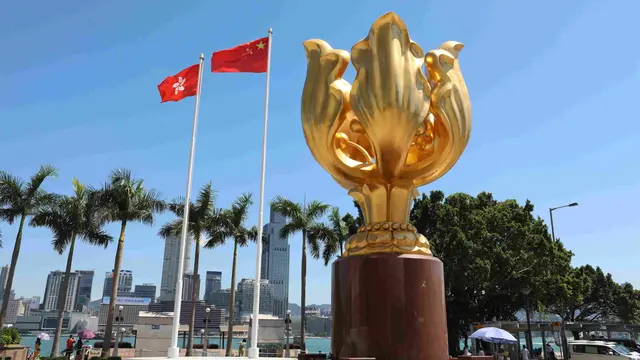Concerning China's recent demarcation of an air defense identification zone (ADIZ), two Hong Kong news commentators said on Tuesday at a TV program that the rationale behind doing so is that in the face of a years of provocation from Japan, China has no room to concede anymore.
After a series of military and political incitement from Tokyo, China escalated its action by demarcating its first ADIZ, whilst Japan had its set up its ADIZ 44 years ago in the vicinity. Both ADIZs blanket the long disputed Diaoyu island.
Local commentator Kwok Yat-ming said by intentionally overlapping the disputed islets, China is delivering an unspoken message to claim sovereignty of the territory.
"China dispatched fighter jets to the Zone on the first day after its demarcation, to test Japan and the U.S.'s limit of tolerance," said Kwok, "Beijing can't afford to concede anymore on Diaoyu island spat. It has no other option but to exert pressure to Tokyo."
Cheung Siu-wai, Senior Lecturer at the Department of Journalism at the Baptist University of Hong Kong ,said it's out of defensive purposes to set up an ADIZ, given the unique geographical feature of China."Unlike the European countries, we have a very long coastal line," Cheung said, "Once we detect hostile invasion from our airspace, we must react promptly, in order to nip the threat in the bud."
Apart from strategic needs, Cheung said Beijing is also telling to the U.S. to call halt to Japan's unreasonable instigations.
"No big thing happened until the 'nationalization' of the Diaoyu island triggered by the Governor of Tokyo Shintaro Ishihara in 2012," said Cheung, "Washington keeps defending Japan in the name of article V of the U.S-Japan Security Treaty. But in the face of fiery challenges, China must do something, so should Washington."
Nonetheless, both Kwok and Cheung said a real fight is unlikely to happen.
"Both countries their designated boundaries around the seas of Diaoyu islets. There have long been vessels from both countries patrolling nearby, but so far, no substantial rows reported," Kwok said.
Cheung said Japan has been trying to gain sympathy from the rest of the world . "Since China established its ADIZ 44 years later than Japan, Tokyo is trying to convince the world that China starts the provocation this time, albeit we didn't break the international law at all."
As such, Kwok noted that resolving the row on the negotiation table seems unrealistic at the moment. As an alternative, China should garner support in the international venue.
"China must let the world know it is the victim under the U.S.'s unauthorized grant of sovereignty of the Diaoyu island to Japan," Kwok said, "What it had done recently is nothing more than safeguarding its own rights."
Cheung said the U.S. has a history of sending bomber jets hovering in China's airspace, such as the one crashed in 2001. In the future, Japan may follow suit.
Kwok said this may lead to direct confrontation in the air. After all it is still on the White House to act as the lubricant between the tug-of-war.
"Anything like aircraft clashing between China and Japan will certainly stir up racial vendetta amongst the citizens of both countries," Kwok said, "Washington must not let this happen."
 简体中文
简体中文

